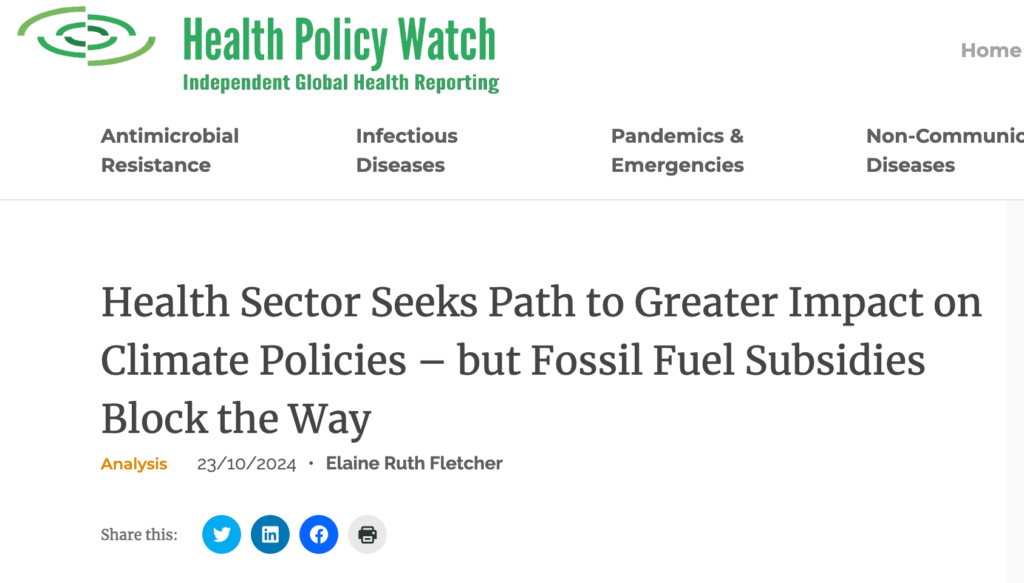As health actors ramp up their game on climate change, in advance of the next UN Climate Conference (COP 29), the fact that global warming poses an ‘existential threat’ to health has become almost cliché.
From extreme heat and flooding to the impact of drought on hunger and fossil fuel emissions that drive hazardous air pollution, the multiple, inter-related challenges remain difficult for policymakers to appreciate and even for scientists to measure – using classical methods of health research.
Even so, global health actors are digging deeper beneath truisms in an effort to map, track and address a vast web of interactions – as well as synergies that could be obtained from more sustainable policies. But as long as the world’s governments continue to pour billions of dollars of investments and trillions into fossil fuel subsidies, they face an upward battle. Meanwhile, the Green Climate Fund funded only one renewable energy project in Africa in the past four years.
Those challenges were a cross-cutting theme at last week’s World Health Summit in Berlin, which devoted almost an entire day of its two-day event to health-related aspects of the climate question – from strategy sessions on how to amplify health and climate research and investments to the panels on the health damage done by fossil fuel investments. Here’s a snapshot of what was discussed.
…
“The health case for a just transition away from fossil fuels is really clear,” declared Jeni Miller, of the Global Climate and Health Alliance, which co-sponsored the session.
“Current health systems based on fossil fuels are driving tremendous impacts on people’s health, and that’s climate change, certainly, but fossil fuels have many, many other health impacts on people, and that’s from the extraction process through transport all the way through end use. And this is happening in communities all over the world. It’s driving air and soil and water pollution. It’s also having occupational health impacts.
“They [impacts] are borne by families when kids are out of school with asthma.. And the industry is not covering those health costs. Those health costs are borne by health systems.
“And while we know that energy access is a vitally important determinant of health, the fossil fuel approach has not gotten that done either,” said Miller, referring to the nearly 600 million Africans still lack access to electricity at home.
Health Policy Watch: Health Sector Seeks Path to Greater Impact on Climate Policies
October 23, 2024


